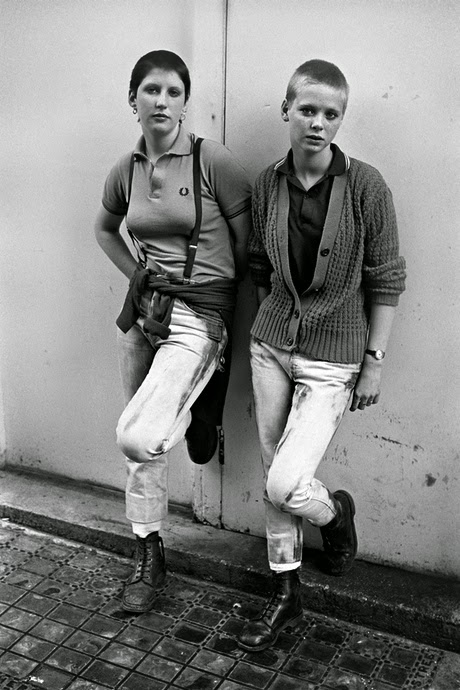Learning outcome:
To study Madness, Music industry with consideration given to Audience debates.
Key term:
For the individual, the identity derived from the collective shapes a part of his or her personal identity. It is possible, at times, that this sense of belonging to a particular group will be so strong that it will trump other aspects of the individual's personal identity.
To put it another way, Collective Identity is the idea that through participating in social activities, individuals can gain a sense of belonging and in essence an "identity" that transcends the individual.
Therein are the rewards and risks of Social Networking. One can derive great satisfaction and sometimes great risks from participating.
Within a typical collective, agreement is often valued over debate, though even more often fierce battles may erupt.
In the exam it is important to stress the longevity of Madness and to state that the band are still gigging and recording today, in 2015.
They are also expanding their fan base.
Throughout Madness long career, 1979 - present, lad culture has been prevalent within lyrics and the pseudo events that Suggs and the group have taken part in to promote. For example, the interview on The Jonathon Ross Show and when Suggs appeared on This is Your Life. Both BBC.
So, is it fair to say that Madness are gender biased when we consider their target audience?
Madness audience includes an element of a skinhead fan base.
You should ask yourself the question;
Do Madness target audiences of a particular class? How? What is the preferred reading?
Literal responses to this question can be found at Fan sites/ Fan fiction / Chat Rooms/Web Forums.
Task 2: Explore the responses of fans through the Internet. Start at the bands website.
http://www.madness.co.uk
The summer of 2012 saw two notable performances. In June, the band performed at the Queen's Diamond Jubilee concert at Buckingham Palace. The band performed "Our House" and "It Must Be Love" from the roof of the palace with accompanying animations projected onto the palace front.Later, in August, the band was the first to perform at the closing ceremony of the London Olympic Games. Departed bass player Mark 'Bedders' Bedford rejoined the band for both performances
Effects debate and the representation of Britishness.
So, if a question about audience debates is asked on your exam you need to consider the following:
Are Madness gender biased?
Have they neglected their Ska roots and will welcome anyone to their fan base, including skinheads?
Can this be justified?
Have Madness neglected their working class roots and aligned themselves with spectacular events and the royal family?
Can this be justified through audience positioning?
To study Madness, Music industry with consideration given to Audience debates.
Key term:
Collective identity.
The concept of a collective identity refers to a set of individuals sense of belonging to the group or collective.For the individual, the identity derived from the collective shapes a part of his or her personal identity. It is possible, at times, that this sense of belonging to a particular group will be so strong that it will trump other aspects of the individual's personal identity.
To put it another way, Collective Identity is the idea that through participating in social activities, individuals can gain a sense of belonging and in essence an "identity" that transcends the individual.
Therein are the rewards and risks of Social Networking. One can derive great satisfaction and sometimes great risks from participating.
Within a typical collective, agreement is often valued over debate, though even more often fierce battles may erupt.
_____________________________________________________
In the exam it is important to stress the longevity of Madness and to state that the band are still gigging and recording today, in 2015.
They are also expanding their fan base.
Throughout Madness long career, 1979 - present, lad culture has been prevalent within lyrics and the pseudo events that Suggs and the group have taken part in to promote. For example, the interview on The Jonathon Ross Show and when Suggs appeared on This is Your Life. Both BBC.
So, is it fair to say that Madness are gender biased when we consider their target audience?
Madness audience includes an element of a skinhead fan base.
You should ask yourself the question;
Do Madness target audiences of a particular class? How? What is the preferred reading?
Literal responses to this question can be found at Fan sites/ Fan fiction / Chat Rooms/Web Forums.
Task 2: Explore the responses of fans through the Internet. Start at the bands website.
http://www.madness.co.uk
_____________________________________________________
Negative responses to the increased alignment with royalty.
The summer of 2012 saw two notable performances. In June, the band performed at the Queen's Diamond Jubilee concert at Buckingham Palace. The band performed "Our House" and "It Must Be Love" from the roof of the palace with accompanying animations projected onto the palace front.Later, in August, the band was the first to perform at the closing ceremony of the London Olympic Games. Departed bass player Mark 'Bedders' Bedford rejoined the band for both performances
Effects debate and the representation of Britishness.
So, if a question about audience debates is asked on your exam you need to consider the following:
Are Madness gender biased?
Have they neglected their Ska roots and will welcome anyone to their fan base, including skinheads?
Can this be justified?
Have Madness neglected their working class roots and aligned themselves with spectacular events and the royal family?
Can this be justified through audience positioning?
___________________________________________________________


No comments:
Post a Comment